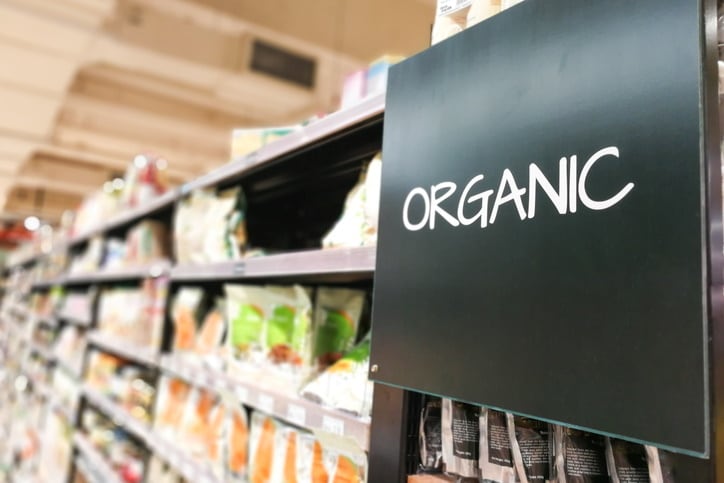In a joint letter to Defra Secretary of State George Eustice, CEOs of the country’s largest meat companies sent a ‘stark warning’ highlighting issues that will hit trade post-Brexit – whatever the state of any Brexit trade deal.
"We are writing to signal our urgent concern about the continued unpreparedness of the key agencies that should plan a critical role in supporting England and Wales based food exporters," the document warned.
The letter said that problems like a current lack of vets in the UK have not been addressed in the months running up to the end of the transition period. They also highlighted the ‘hidden damage’ that the new customs certification process will inflict on exporters of animal-based products, regardless of whether or not the UK secures a deal with the EU.
Prime Minister Boris Johnson’s eleventh hour bid to secure agreement on the future trading relationship with Europe – flying to Brussels for last-minute talks with EC President Ursula von der Leyen – will do little to assuage the fears of an industry that has long been warning that the country’s preparedness for meat exports to continue was being implemented at a ‘snail’s pace’.
The group warned that the outlook for UK meat manufacturers from 1st January looks ‘bleak’, with British firms being put at a ‘severe competitive disadvantage’ due to the new requirement to complete an Export Health Certificate for every single delivery of animal origin product to the EU.
They also drew attention to the fact that, despite being told by Government to prepare for Brexit, companies cannot begin to implement new systems and IT upgrades until after 18th December. This is when the Standing Committee on Plants, Animals, Food and Feed meets to fix the details of what exactly British firms will need to comply with.
“This gives companies 6 working days over the busiest week of the year to implement whatever is necessary before 1 January.”
But it’s already too late to implement some of the likely requirements, an example of which is the need for testing and declarations to certify animals and processed meat are free of trichinella. This is not a current requirement so there is no system in place. This means that any animals or product currently in the system will not be cleared for export.
The UK exports £1.6bn-worth of meat to the EU each year. This, the chief executives warned, will not be offset by increased domestic demand because much the trade occurs in cuts of meat not consumed in the UK. The result, they suggest, will also be higher prices for UK consumers and home market disruption.
Signatories included the country's largest meat companies with Cranswick CEO Adam Couch, Dunbia CEO Niall Browne, Moy Park president Chris Kirke and Pilgrim's CEO Andrew Cracknell among the backers. The NFU, British Poultry Council, Cold Chain Federation and British Meat Processors Association were also involved in penning the warning.
What the UK government ‘needs to do’
In their letter, the group made three calls for UK Government to take’ more decisive policy action’ to increase certification resource and simplify the export process.
“First, we want Government to instruct, and financially support, all Official Veterinarians employed (directly or indirectly) by the Food Standards Agency or other government agency to play a direct role in supporting the export certification process for products of animal origin,” they said.
The group noted that food companies in other European countries will have the ‘distinct advantage’ of having their export certification completed by the FSA’s European counterparts.
“Second, we want Government to use the authority of Animal and Plant Health Agency to significantly simplify the guidance on how official veterinarians at the last point of departure before export can rely on existing controls as the basis for having confidence to certify the products for export.
“Third, we want Government to revise the rules on what inspection and verification must be done by an Official Veterinarian, and what can be done by an appropriately trained and supervised Certification Support Officer.”
They warned: “Unless Government now steps in with these robust interventions, we may have gone beyond the point that these issues can be fixed and a significant loss of business for the meat industry may now be inevitable.”
EU food sector calls for targeted support
On the other side of the English Channel, representatives of the European food and beverage sector have also sent out a call for ‘urgent’ action on EU-UK trade relations.
In a five-point plan, organisations including Copa Cogeca and FoodDrinkEurope shared their view on what needs to be ‘done next’.
“The UK will leave the Single Market and the Customs Union which will mean customs procedures, regulatory burdens and rising transport costs. A no-deal scenario, with the imposition of tariffs and heavy customs requirements, will create a dire situation.
“Our priority is to safeguard jobs and allow the agri-food sector to thrive. At this eleventh hour we call on negotiators to strike a comprehensive tariff and quota-free trade agreement with close harmonisation of rules, including on sanitary and phytosanitary measures and technical barriers to trade. We must strive for a level playing field, including on workers’ rights,” they said in a joint statement.
Whether a deal is struck or not, the group put forward five ‘urgent requests’:
- ‘Immediate clarity’ on future UK-EU trade rules are essential to avoid ‘more economic turmoil and job uncertainty’.
- ‘Specific measures’ to support a ‘smooth transition’ will be needed because, the suggest, agri-food businesses will likely ‘feel a greater impact’ from Brexit.
- Public authorities will need to organise ‘quick and effective’ information campaigns to help businesses understand the new rules.
- Workers’ rights ‘must be protected’ and businesses given ‘the assistance they need’ to maintain job security.
- Constant dialogue with the European Commission and UK authorities, as well as with social partners and stakeholders, will be ‘essential’ to respond to ‘potential disruptions and emergencies’.
“Whatever the outcome of the negotiations, we encourage the EU and UK to put any acrimony behind them in favour of a strong and productive relationship for the benefit of all.”




